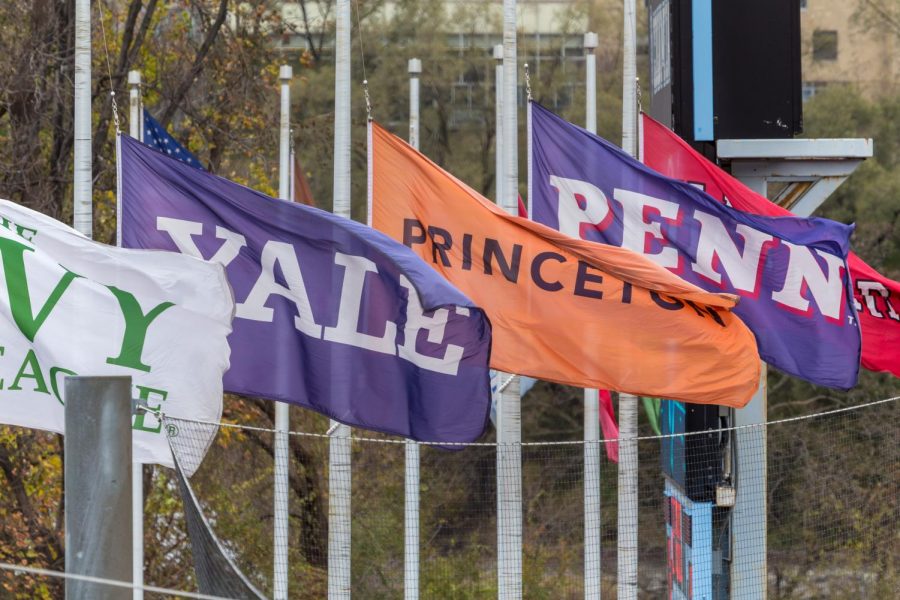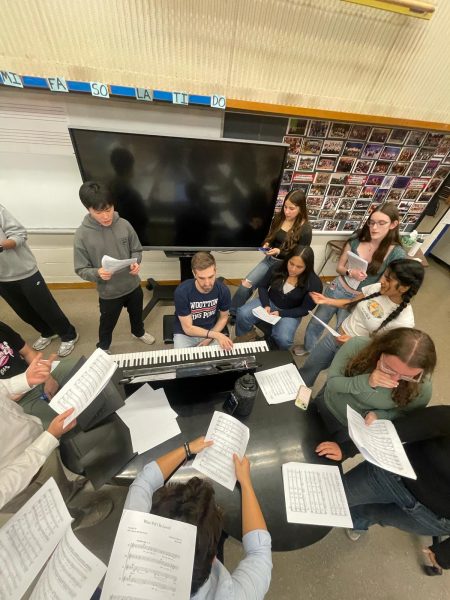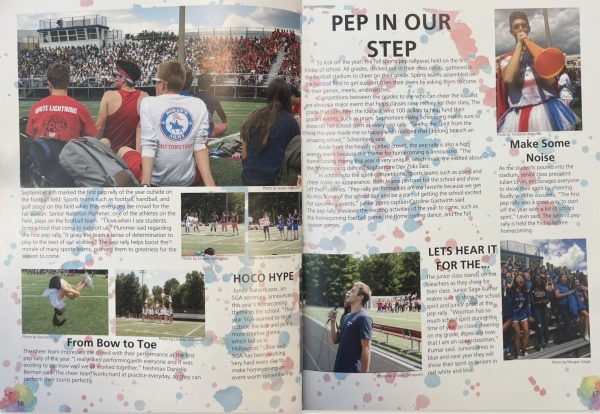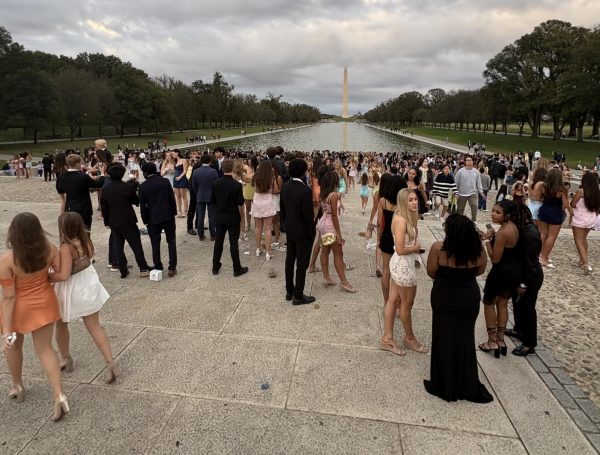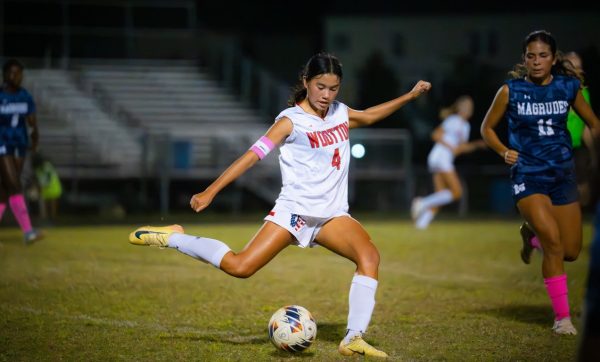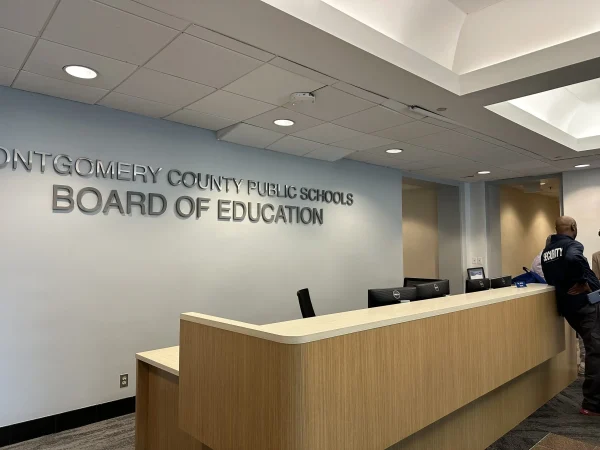What’s in a name? Toxicity surrounds college acceptance culture
Photo used with permission from Wiki Commons
Flags for the Ivy League schools fly at Columbia’s University’s Lawrence A. Wien stadium.
As early application results begin to roll in and students declare their majors and homes for the next four years, the easily-disguised parts of being a student here begin to rear their ugly heads. Going to such an academically overperforming school means that every student is competing against their own, and the competition for students has only been reinforced with dozens of schools around the country shrinking their class sizes to accommodate for COVID acceptances. According to CBS News, many U.S. universities this year are reporting record low acceptance rates after switching to test-optional policies during the pandemic that opened the door to a larger pool of applicants. Thus, the decreasing certainty of four-year college acceptances brings the intensification of a toxic competitive culture that has evolved into the basis of Wootton’s culture as a school.
A simple 30-minute drive away, the University of Maryland, a prestigious and academically riveting school, has consistently been blacklisted as a disappointment or failing option for incredibly well-achieving students here. With 33% of the Class of 2021 enrolling at UMD, its ease in acceptance for students has painted this top-20 school as a final resort or a doomsday destination. “Although some people explicitly state it and some keep it internally, I’d say about six to seven out of 10 people think Maryland is a ‘failure’ school,” senior Zixin Liu said.
Despite being number 19 in the nation for top public school education and number nine for cybersecurity education, UMD’s proximity to this cluster and exuberant amount of Wootton graduates topple its academic benefits, leaving it be be compared with community colleges, another option that is disregarded as a legitimate successful post-education choice. “Honestly, I think people treat Maryland on the same level as Montgomery College, but MC is totally a good option. I think that because [UMD] isn’t in the top 20 people treat it terribly. It’s a perfectly good school,” senior Jack Bernal said.
The continual disgust toward world-renowned institutions raises the question: What’s in a name? How important is the school attached to your end at the end of the year? “I would say that people are really judgemental about what school you go to, so the name is really important about how you want to be perceived. But for education, it doesn’t really matter because most institutions give pretty much the same education give or take,” Bernal said.
Unfortunately, this school-wide culture isn’t new. The hierarchy of competitive student applications and supposed superiority of elite and prestigious schools has been in place here since its commencement, with its prevalence only escalating over the last 10 years. However, this culture isn’t solemnly permeated by the students, as seniors claim that this expectation is also implied by teachers and their exclusion of other post-college options. “The [teachers] definitely want you to go to college and they probably look down on people who join the military subconsciously as well. It isn’t just the students. And even though they say they support all student’s choices, that definitely isn’t true,” senior Zixin Liu said.
With the societal rejection of schools like UMD comes the idolization of Ivy League schools and schools considered “public Ivies”, including UC-Berkeley, UVA, UMich, UCLA, and UNC-Chapel Hill. In this case, the name is absolutely crucial, and it is often reflected with the precedent of one’s college choice on their job availability and success in the future. “The [Ivy] name carries so much prestige, so saying that you go to one will give you a better path in the future. I think education wise, it’s all around the same,” senior Yushin Wang said.
Despite the relatively equal education at most widely-recognized and awarded schools, the treatment of the individual colleges widely varies, as though the college name listed on a master’s degree determines one’s ability to succeed in modern society. Wootton’s culture surrounding the importance of a college’s name on a student’s capabilities is, if anything, incredibly superficial and should not continue to stand as an representative mentality of Wootton High School.
Your donation will support the student journalists of Thomas S. Wootton High School. Your contribution will allow us to purchase equipment and cover our annual website hosting costs.
Margarita is a 2023 graduate.


